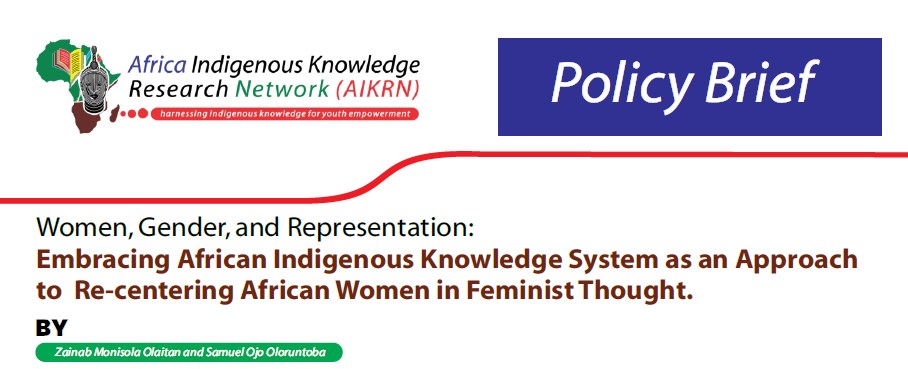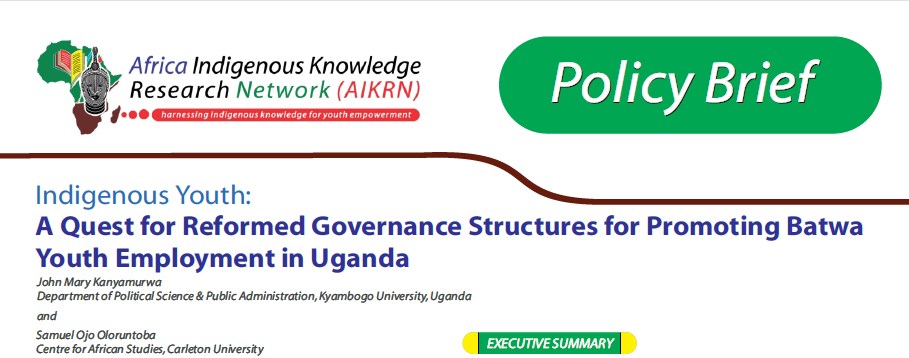The Relevance of African Indigenous Knowledge Systems for Development in Africa. By: Zainab Monisola Olaitan
Overview
This policy brief explores how African Knowledge Systems (AIKS) can impact the practical realities of the African people and contribute to the socio-economic development of Africa. It argues that the relevance of AIKS should not be limited to the realm of epistemology as it can be used to guide the way of life and practices of Africans. The brief proposes that we must move beyond the myopic view that AIKS is just an alternative form of knowledge to enable us to acknowledge that it is an entire system that comprises knowledge, beliefs, practices, concepts, and value systems that can better improve lives and contribute to development in Africa.
Executive Summary
The embrace of AIKS as an epistemological frame has and continues to garner increased attention in academia, policy and community circles. Indigenous Knowledge Systems have been ignored for a long time due to the dominance of the Western-centric knowledge framework. Thereby translating into the adoption of a Western lens of knowledge and practice across different contexts. African scholars have decried the superiority of the Western lens and the adoption of this lens for understanding Africa (Ndlovu-Gatsheni 2018). Others have argued that it is important to move beyond reaction to action, that is, embracing Indigenous Knowledge Systems as a means of knowledge and practice (Olaitan and Oloruntoba 2023a). These different perspectives have led to the attention that Indigenous Knowledge Systems is garnering. However, this attention is limited to understanding AIKS as an epistemological frame that can underpin the ways of knowing. Chikaire et al. (2012) contend that there has been a significant rise in understanding the contribution that Indigenous knowledge can make to authentic participatory sustainable development approaches. This growing interest is evident in the various initiatives undertaken within communities, where they are documenting their knowledge for integration into their educational systems and for strategic planning in national organisations. Understanding the contribution that AIKS can make to development requires the acknowledgement of its transformative impact beyond knowledge. This is also in consideration that AIKS has many benefits for improving governance, medicine, technology, entrepreneurship etc. The myopic view of AIKS as alternative knowledge will only restrict it to a knowledge system, whereas it has numerous useful practices that can be applied to the African context. We must recognise the relevance of AIKS beyond just being an alternative means of knowledge production. Therefore, this brief argues that discussions on adopting AIKS must not be limited to the realm of epistemology as it can be used to guide the way of life and practices of the African people.








